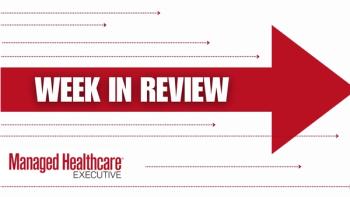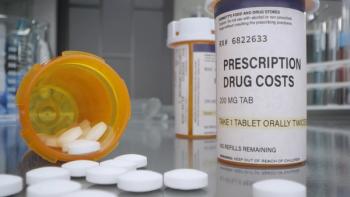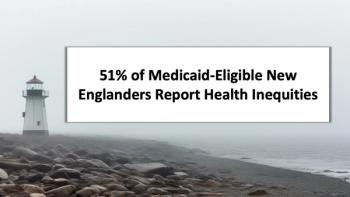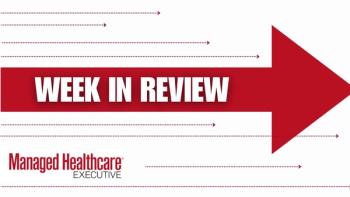
Here’s what you missed this week on Managed Healthcare Executive.

Here’s what you missed this week on Managed Healthcare Executive.

Emergent BioSolutions is planning to donate 50,000 doses of the mpox vaccine to countries in Central Africa.

As Trilliant Health's Chief Research Officer, Sanjula Jain, Ph.D., and her team discovered that telehealth use is mostly driven by personal preferences — consumers who love the convenience, while others still prefer seeing a doctor in person because they think it's better quality. Listen in on the final interview of a three-part video series

Projections calculated for AARP show that 8.4% of Part D enrollees will benefit from the Inflation Reduction Act's $2,000 cap on out-of-pocket costs that goes into effect in 2025.


Sanjula Jain, Ph.D., chief research officer at Trilliant Health spoke with Managed Healthcare Executive in this part two interview on recent research that revealed where telehealth use stands after the pandemic. While its use is declining, Jain advised what areas are of best focus for investment.

A new survey of Medicaid-eligible New England residents examines healthcare inequities in detail.

This latest grant is part of a larger $500 million CMS program designed to identify and support communities in need.

Perceptions of affordability don't show an advantage to Medicare Advantage, say former and current Commonwealth Fund leaders.

A recent study predicts a $34 to $145 billion annual cost for semaglutide due to Medicare’s decision to cover semaglutide for overweight patients with cardiovascular disease.

CMS will provide key logistical support to states that participate in its outcomes-based funding model for gene therapy treatment for sickle cell disease.

Virtual care offers a significant opportunity to bridge the gap between supply and demand in behavioral health services. However, there are risks associated with the lack of integration between virtual care and traditional healthcare systems, particularly in medication management.

Research published today in JAMA Health Forum Shows primary care physicians faced an average of 57 quality measures. The authors argue that many may interfere with care improvement and contribute to physician burnout.

Specialty drugs and catastrophic claims are among those that contribute to the increase.

Having a first-degree relative with colorectal cancer increases risk by two to four times.

They work by inhibiting inflammatory cytokines. But in a small percentage of patients antiinflammatory biologics may stir up “paradoxical psoriasis.”

Manuka honey inhibited the growth of breast cancer tumors by 84% in mice.

Authors say their findings support current CDC recommendations for testing for the bacterial sexually transmitted infections, especially gonorrhea.

Death and infection rates this year caused by the latest clade 1b strain have already surpassed last year's numbers. At this time, it’s unclear if having HIV increases the risk of mpox.

Gene therapy is enormously complicated, inefficient and slow. Early tests of a newly developed machine learning model show how much faster, and more efficient, it might be.

The key to lowering gene therapy costs – and getting treatments to where they are most needed – could be making them in middle- low-income countries, argue the authors of a recent commentary in Nature.

Here’s what you missed this week on Managed Healthcare Executive.

The Rx Save Card is a new, employer-funded, pre-paid pharmacy discount service that allows consumers to pick between PBM prices and prices available through traditional discount cards.

The Medicare program is expected to see some aggregate savings from the negotiated drug prices. Beneficiaries, because of out-of-pocket caps next year, may not see the benefit, that is until the next round or two of negotiations if CMS choses drugs that are not heavily rebated.

Associate director of healthcare and public health programs at the Digital Medicine Society (DiMe), a global nonprofit and professional home for digital medicine

This therapy is a first-in-class treatment for chronic graft-versus-host disease, which develops in roughly 42% of those who receive a stem cell of bone marrow transplant.

The negotiated prices range from 38% to 79% discounts off of list prices, according to the Department of Health and Human Services.

Vice president of legal and compliance at Abarca Health, a pharmacy benefits manager and healthcare technology company.

The system, called ThecaFlex DRx, allows subcutaneous administration of Spinraza (nusinersen) directly into the cerebrospinal fluid, and aims to replace the current administrative route through lumbar punctures.